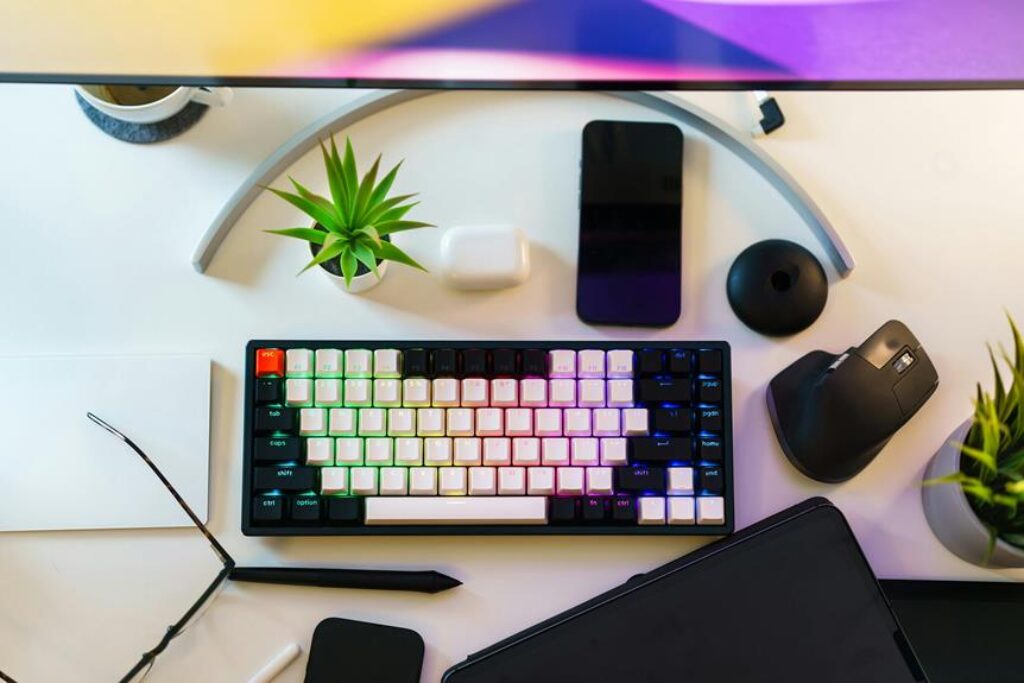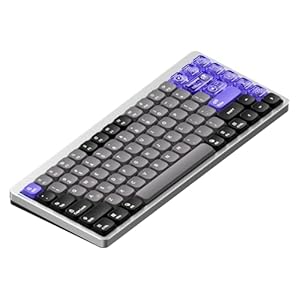
When deciding between a membrane and mechanical gaming keyboard, you might be curious about how they impact your gaming experience. Have you ever wondered why some gamers swear by the tactile feedback of mechanical keyboards while others prefer the quiet comfort of membrane ones? Understanding the nuances between these two types of keyboards can help you make an informed choice that aligns with your gaming preferences and performance expectations. Discovering the key differences between membrane and mechanical keyboards could shed light on which one suits your gaming style best.
Membrane Keyboards: Key Features and Benefits
When choosing a keyboard for gaming, understanding the key features and benefits of membrane keyboards is essential. Membrane keyboards are known for their quiet operation, making them ideal for late-night gaming sessions when you don’t want to disturb others. The design of membrane keyboards consists of three layers: a top membrane layer, a conductive trace layer, and a bottom membrane layer. This construction provides a soft and cushioned feel to the keys, offering comfort during extended gaming periods.
One of the key advantages of membrane keyboards is their affordability. They’re often more budget-friendly compared to mechanical keyboards, making them a great option for gamers looking for a reliable yet cost-effective solution. Additionally, membrane keyboards are generally lighter and more portable, making them easier to transport for gaming events or LAN parties.
Mechanical Keyboards: Advantages and Drawbacks
Mechanical keyboards offer a distinct typing experience due to their individual mechanical switches, contrasting with the soft and cushioned feel of membrane keyboards. These keyboards are known for their durability, with switches rated for tens of millions of keystrokes, making them ideal for heavy typists or gamers. The tactile feedback provided by mechanical keyboards gives you a satisfying sensation with each keypress, enhancing typing accuracy and speed.
One of the main advantages of mechanical keyboards is the ability to customize the typing experience to suit your preferences. You can choose from a variety of switch types, each offering a different feel and sound, allowing you to find the one that best fits your needs. However, this customization can also be a drawback for some, as the wide range of options can be overwhelming for those new to mechanical keyboards.
In terms of drawbacks, mechanical keyboards tend to be louder than membrane keyboards due to the audible click or clack of the switches. This noise level may not be suitable for quiet environments or shared workspaces. Additionally, mechanical keyboards are typically more expensive than membrane keyboards, making them a higher investment upfront.
Performance Comparison: Speed and Precision
For gamers and typists seeking optimal speed and precision in their keystrokes, the performance comparison between membrane and mechanical keyboards is crucial.
Mechanical keyboards are known for their tactile feedback and distinct key presses, allowing for faster and more accurate typing or gaming. The individual mechanical switches in these keyboards register keystrokes with precision, reducing the chance of errors and providing a satisfying typing experience.
On the other hand, membrane keyboards have a softer feel and quieter operation, but they may lack the same level of responsiveness and accuracy as mechanical keyboards. The membrane layer in these keyboards requires full key presses to register, which can slow down typing speed for some users.
In terms of speed and precision, mechanical keyboards often outperform membrane keyboards due to their design and mechanism. Therefore, if you prioritize swift and accurate keystrokes in your gaming or typing tasks, a mechanical keyboard may be the better choice for you.
Personal Preference: Choosing the Right Keyboard
To make an informed decision on selecting the right keyboard for your needs, consider your personal preferences in terms of typing experience and performance.
If you prefer a quieter typing experience with keys that require less force to press, a membrane keyboard might be the better choice for you. Membrane keyboards provide a softer feel and are generally more budget-friendly.
On the other hand, if you enjoy tactile feedback, faster response times, and a more durable build, a mechanical keyboard could be the ideal option. Mechanical keyboards offer distinct key presses, customizable switches to suit your typing style, and a satisfying click sound.
Consider factors like key travel distance, actuation force, and the sound level produced when typing. Ultimately, your choice between a membrane and mechanical keyboard will depend on your personal preferences and how you prioritize factors like typing comfort, durability, and performance.
Trending Products














